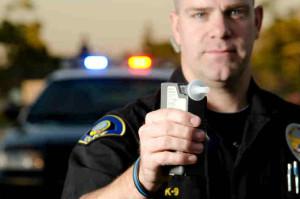Hampton Roads DUI Lawyer
 Those who are arrested on the Virginia Peninsula for driving while intoxicated or under the influence of drugs face charges under the Commonwealth’s DUI laws. Virginia Criminal Code Section 18.2-266. Those charged with any of these crimes, which also apply to operating a watercraft (Section 29.1-738), are wise to retain a seasoned Hampton Roads DUI lawyer immediately. Convictions come with heavy fines, jail terms, and license suspensions. And when charged, any suspect’s driver’s license is immediately suspended for anywhere from 7 to 60 days.
Those who are arrested on the Virginia Peninsula for driving while intoxicated or under the influence of drugs face charges under the Commonwealth’s DUI laws. Virginia Criminal Code Section 18.2-266. Those charged with any of these crimes, which also apply to operating a watercraft (Section 29.1-738), are wise to retain a seasoned Hampton Roads DUI lawyer immediately. Convictions come with heavy fines, jail terms, and license suspensions. And when charged, any suspect’s driver’s license is immediately suspended for anywhere from 7 to 60 days.
- Felony DUI Lawyer
- DUI Drug Offense
- Marijuana DUI
- Drug and Alcohol Interactions
- Checkpoints
- Initial Appearance
- Arraignments
- Plea deals
- Out of State Drivers
- Medical Attention After a DUI
- Jail Following a DUI
- DUI Arrest Records
- Discovery process
- Substance Abuse Evaluations
- Motion hearings
- Car following DUI
- Refusal of DUI Testing
- Constitutional Issues
- Pretrial Release and Bond in Hampton Roads DUI Arrests
- Independent Blood and Urine Testing
- First Time DUI Charge
- Challenging Blood Tests
DUI Charges in Hampton Roads, Virginia
Virginia’s DUI laws apply to any form of the offense if the “intoxicant” causes any physical or mental impairment including:
- The suspect’s Blood Alcohol Concentration (BAC) is at least 0.08
- Violators are “under the influence of alcohol” to the point of impairment, in the opinion of the arresting officer, with a BAC reading of less than 0.08
- In the opinion of the officer, the suspect is under the influence of any drug, regardless of whether their BAC is less than 0.08
- The operator is under the influence of a combination of drugs and alcohol at any detectable level
Special statutes also exist for drivers under the age of 21. Their level of impairment can be as low as 0.02 BAC. Section 18.2-266.1. Underage penalties include a fine of $500, a one-year driver’s license suspension, 50 hours of community service, and likely a state-approved alcohol awareness program. And underage drivers who have a BAC of 0.08 are subject to adult DUI penalties if convicted.
As a statutory requirement, even on a first offense an ignition interlock device (IID) must be installed on a vehicle for a minimum of six months should the person seek a restricted operator’s license to prevent the vehicle from starting if the driver is impaired. Section 18.2-270.1. A Hampton Roads DUI lawyer may be able to help individuals who want to request a restricted license.
From Traffic Stop to DUI Charge
If you end up at the police station, it means the officer believed that he or she had probable cause to first stop, and then to arrest you. Probable cause for an arrest on suspicion of DUI often arises when you demonstrate certain identifiable driving behaviors (like swerving, speeding, or driving too slowly) and then fail one or more of several standard field sobriety tests (SFST) after being pulled over by a law enforcement officer. Though you might have refused these tests, which is your right, your behavior, especially if there’s a vehicle dash cam or officer cam, can provide probable cause to arrest.
After arriving at the police station, a formal blood alcohol test is administered, most often with a device called a breathalyzer. You also have the right to refuse this test, but a penalty for refusal is the immediate loss of your driver’s license for a year. Section 18.2-268.3. And if convicted, you may not apply to the DMV for a restricted license.
New Penalties for DWI/DUI Convictions
In January 2014, new “weighted” sentencing statutes for DUI/DWI violators went into effect. Several factors determine the penalty. They include:
- Someone’s BAC level
- The number of previous convictions over a 10-year “lookback” period could add more minimum jail time to a person’s sentence
- Whether there were any minors in the vehicle when the defendant was arrested
A first offense DUI is a class 1 misdemeanor and carries a penalty of up to 12 months in jail and/or a fine from $259 to $2,500, plus a statutory one-year license revocation. A second-offense DUI conviction carries a fine between $500 and $2,500, up to a year in jail (with a 20-day mandatory minimum sentence) and up to a three-year license suspension or revocation. A third DUI offense brings a fine of between $1,000 and $2,500, a mandatory minimum jail sentence of six months, and indefinite driver’s license suspension. Section 18.2-270.
How a Hampton Roads DUI Attorney Can Help
Those who are convicted of DUI receive six Virginia Department of Motor Vehicles (DMV) demerit points, which remain on their driving record for 11 years. Any DUI offense (including arrest, even if you are not convicted) is reported to the Central Criminal Records Exchange. This means if convicted your record will report conviction for a Class 1 misdemeanor.
There are many compelling reasons for you to retain a Hampton Roads DUI lawyer if you are charged with this offense. By doing so, it is more likely that you could avoid the full weight of these consequences.

